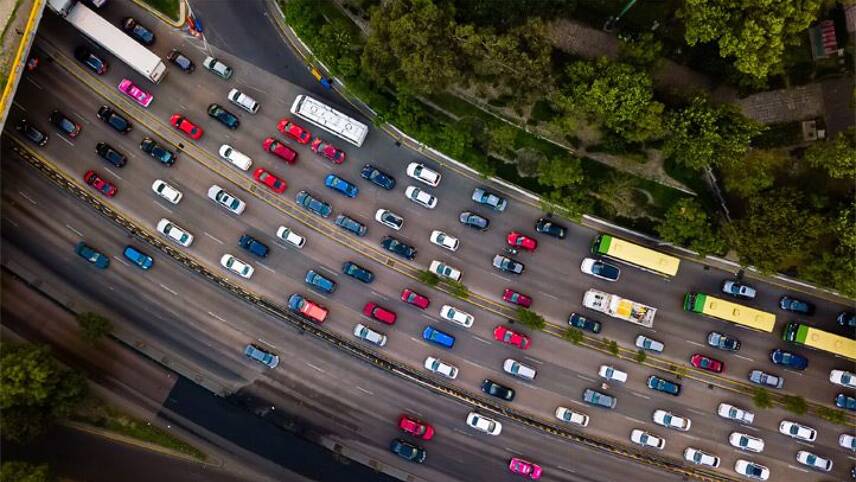Register for free and continue reading
Join our growing army of changemakers and get unlimited access to our premium content

Almost half of the companies assessed scored a ‘zero’ on emissions targets
That is according to a damning new analysis from the World Benchmarking Alliance (WBA), which assessed 30 of the world’s biggest automotive corporations.
The Alliance’s latest benchmark of climate action in the automotive sector ranks companies on the measures they are taking to electrify their portfolios, sell low-carbon vehicles, encourage modal shift among consumers and engage and comply with national and international climate legislation.
Of the businesses analysed, 20 have not publicly published emissions reduction targets for emissions generated when vehicles are in use. For most brands, this is the largest source of Scope 3 (indirect) ambitions. And, of the ten businesses which have public targets, only five have targets which are aligned with the Paris Agreement’s ‘well-below 2C’ trajectory.
Almost half (12) of the companies assessed scored a ‘zero’ on emissions targets – either due to a lack of disclosure or to weak targets. Tesla, Mitsubishi, Fiat Chrysler and BYD are in this cohort.
The WBA is concerned that, without these targets, carmakers will be externalising a significant proportion of their emissions – a trend which risks progress on the Paris Agreement on a global scale.
The benchmark also found that not enough is being done to promote EVs. While many of the companies analysed have dramatically expanded their EV offer in recent years or even set time-bound targets to stop producing petrol and diesel models, just 2.29% of the vehicles sold by the cohort in 2019 were EVs. This proportion should be at 6.2% or higher if companies wish to claim they are Paris-aligned, according to the WBA.
Measures which carmakers could take to improve EV sales include developing better communications; launching targeted discount packages and working with governments to improve financial incentives and infrastructure.
Overall, the WBA concluded that little progress has been made since it developed the first edition of the benchmark last year. Among the best performers on climate were Ford, Volkswagen, Groupe PSA and Renault.
‘Just’ transition gaps
The publication of the new sector benchmark comes in the same week that the WBA released an updated Corporate Human Rights Benchmark (CHRB), ranking 229 of the world’s biggest businesses on their compliance with the UN’s Guiding Principles on Business and Human Rights.
Overall, some half of the businesses either produced insufficient information to determine that they were protecting human rights, or disclosed information proving that abuses are still rife in supply chains.
The analysis covered businesses in the automotive, agriculture, fashion, ICT manufacturing and extractive sectors. On a sector-wide basis, the automotive sector was the worst performer.
Two-thirds of the automakers scored zero across all human rights due diligence indications. The average overall score was 12% – lower than any other CHRB-benchmarked sector.
This finding, the WBA is warning, suggests that automakers are ill-prepared to play their role in delivering a ‘just’ low-carbon transition.
“There is a concerningly large group of companies who have made little to no progress in the last 12 months; we’re sensing a real reluctance from the laggards to improve,” the WBA’s lead for the CHRB, Camille Le Pors, said. “While a small group of companies are demonstrating strong commitment and processes, it’s not always clear that these deliver their intended effects.”
Sarah George


Please login or Register to leave a comment.